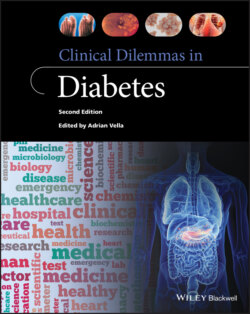Читать книгу Clinical Dilemmas in Diabetes - Группа авторов - Страница 30
Exercise and diet for the prevention or delay of diabetes mellitus
ОглавлениеA systematic review and meta‐analysis included 28 studies with 1 261 991 subjects and investigated the role of physical activity in reducing progression to DM [100]. Overall, for those who achieved 11.25 metabolic equivalent of task (MET) hours/week (equivalent to 150 minutes/week of moderate activity) there was a risk reduction of 26% for DM. Further risk reductions occurred at greater MET hours/week. The Health Professionals Follow‐up Study showed that engaging in weight training or aerobic exercise for at least 150 minutes/week was independently associated with a lower risk of DM of 34% and 52%, respectively [101]. The greatest reduction in DM risk was seen in men who engaged in both aerobic exercise and weight training for at least 150 minutes/week, with a risk reduction of 59%.
The Prevención con Dieta Mediterránea (PREDIMED) study enrolled older adult subjects at high risk for but without baseline CVD and randomized participants to either a Mediterranean diet supplemented with extra‐virgin olive oil, a Mediterranean diet supplemented with mixed nuts, or a control diet based on general advice to reduce fat intake [102]. Compared to the control group, the Mediterranean diet supplemented with extra‐virgin olive oil group had significantly lower progression to DM with a HR of 0.60 (95% CI 0.54–0.85). The beneficial effect seen in this study was thought to be due to dietary composition itself and not attributed to calorie restriction, increased physical activity, or weight loss.
